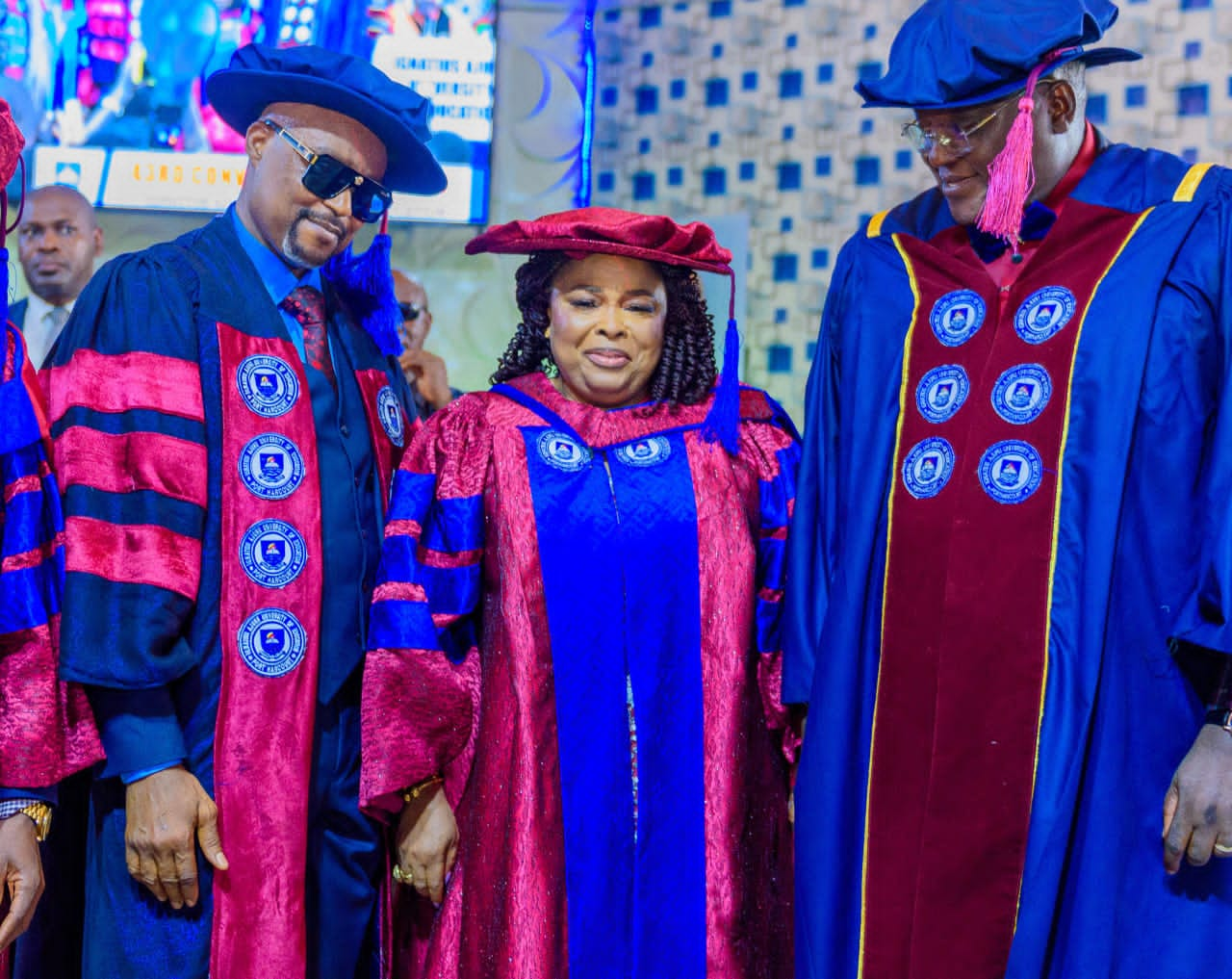Education
ICT To Separate Countries In 2010
Information and Communication Technology (ICT) will by the year 2020 separate developed countries from non-developed ones, according to projections by the World Bank.
Dr Armstrong Takang, chairman of the Committee on ICT for Development (ICT 4D) plan, made this known to newsmen in Abuja recently while talking on the ICT 4D plan.
“The World Bank had projected in 2008 that information technology would be responsible on a scale of 70 to 30 per cent for determining real growth in most countries from 2015”, he said.
Takang, who was speaking on how the ICT 4D plan would promote education at all levels, stated that ICT is one of the best performing sectors in the World Bank’s portfolio in terms of returns and development impacts.
He stated that the programme would be implemented at the national level, saying that it will target teaching and non-teaching staff of primary, secondary and tertiary schools.
“This will develop human resources desirable for teaching, research and development in schools and will develop human resources for the management of ICT facilities deployed to schools”, he said.
He said the programme would train a critical mass of Nigerian school teachers on the basic principles and practices of ICT.
“It will provide teachers the knowledge of the applications of ICT facilities in teaching and learning as well as acquisition of skills on the operation and maintenance of ICT facilities.
“It will also accelerate mass acquisition of the knowledge of ICT by the core and critical class of Nigerian manpower that is traditionally involved in human resource development at the school level”, he said.
Dr Takang said many ICT projects had failed due to poor participation and involvement of the staff on ground and users’ departments with regards to development, operation and maintenance.
He, however, said the ICT 4D plan would provide a vehicle for awareness, appreciation and use of ICT by teaching and non teaching staff of schools.
According to him, the programme will improve productivity of health care administration system and would also reduce cost of healthcare delivery.
He said ICT could be used for the study and control of epidemics as well as to provide an information system to educate the populace on preventable diseases.
“The provision of ICT”, he said, “can impact on improving the spate of all the parameters for vision 20-2020.”
Sogbeba Dokubo
Education
‘Our Target Is To Go Beyond Academic Accomplishments’

The Acting Vice Chancellor of Ignatius Ajuru University of Education, Port Harcourt, Prof. Okechuku Onuchuku, emphasised the need for students to go beyond academic achievements during the university’s 43rd Convocation ceremony.
The theme, “The University Culture In Practice, The IAUE Experience,” highlights the importance of embracing cherished traditions and intellectual values that define great universities.
Prof. Onuchuku encouraged the new graduates to work hard and persevere, noting that their convocation marks a new beginning in their careers and personal lives. He emphasised that they must prove themselves worthy of the certificates and prizes they have received.
According to him, out of 2,887 first-degree graduands, four made First Class, 403 secured Second Class Upper, 2,030 got Second Class Lower, and 450 graduated with Third Class. Additionally, 1,492 postgraduate students graduated, including 306 PhD holders.
The Sole Administrator of Rivers State, Vice Admiral Ibok-Ete Ekwe Ibas (Rtd), praised the university’s commitment to academic excellence and institutional maturity. He commended the Acting Vice Chancellor for achieving full accreditation for 47 academic programmes and implementing the NUC’s Core Curriculum Minimum Academic Standards.
The administrator urged the new graduates to uphold the positive values instilled in them by the university and strive for continuous knowledge and improvement.
By: King Onunwor
Education
Niger Delta Students Suspend Protest Against NDDC In PH

The Niger Delta Students Union Government, Rivers State Chapter (NIDSUG), has suspended its planned protest against the Niger Delta Development Commission (NDDC) state office in Port Harcourt. The suspension followed an intervention by the state Commissioner of Police, CP Olugbenga Adepoju.
The students had planned to protest on Thursday, citing alleged neglect by the NDDC, particularly in welfare and capacity-building programmes for students from the state. However, after the police intervention, the students agreed to participate in a roundtable discussion with the commission to address their concerns.
NIDSUG leader, Comrade Loveday Njoku, expressed dissatisfaction with the commission’s alleged exclusion of students from benefiting from its programmes. He presented a seven-point demand, including the reintroduction of scholarships for undergraduate and postgraduate students. Njoku emphasised that education is crucial for community development and urged the commission to invest in the future leaders of the state.
The students warned that if their demands are not met, they will resume the protest and occupy the state commission office until their demands are addressed. Despite previous attempts to reach out to the commission’s management team, the students claimed their efforts were unsuccessful.
By: Akujobi Amadi
Education
Administrator Inspects School

As part of efforts to improve the welfare and overall quality of education for students in Obio/Akpor Local Government Area, the Sole Administrator, Sir (Dr.) Clifford Ndu Walter DSSRS, FCAI, JP, paid an unscheduled visit to Universal Primary School, Rumukwurusi.
During the visit, Sir Walter expressed deep concern over the deplorable state of the school and its surrounding environment. He reaffirmed his administration’s commitment to the development of the education sector, stressing its critical role in nation-building.
“I have visited the primary school in Ogbogoro, and now I’m here at the Universal Primary School, Rumukwurusi. I am not satisfied with what I’ve seen,” he stated, indicating that more surprise visits to schools would follow.
To address the issues, the Sole Administrator directed the Council Engineer to commence process for rehabilitation of the school.
The visit was part of a broader initiative aimed at conducting on-the-spot assessments of educational facilities to determine the level of intervention required by the local government council.
Dr. Walter also assured the teachers of his unwavering commitment to revamp the school and improve the learning environment for both staff and students.

